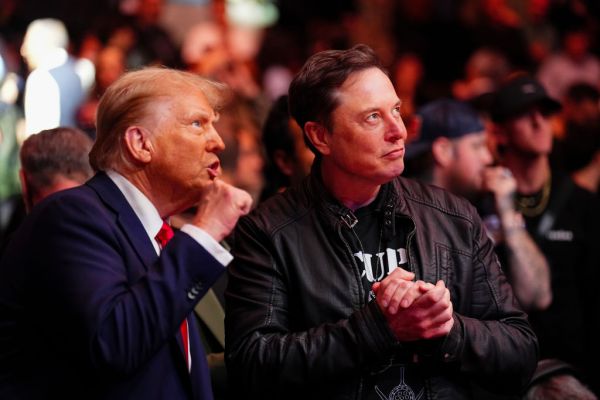Where I part company with Daniel McCarthy—one half of our recent Dispatch debate on Trump’s kooky Cabinet picks—is at the very beginning, with his premise that the conservative movement could use more figures such as Robert F. Kennedy Jr. and Tulsi Gabbard because they are “skeptics.” But they aren’t skeptics—they are cranks. Kennedy is not nearly as skeptical as he should be about every imbecilic new-age health fad and conspiracy theory to come in over the transom, whereas Gabbard could stand to be a bit more skeptical about the foreign-policy analysis of, say, Bashar al-Assad and Vladimir Putin’s sundry factota on the American right.
As McCarthy notes, the “conservative movement was born in the 20th century in a bout of populist skepticism.” I think of the first issue of National Review, the cover of which advertised, among other offerings, Of Thee I Sing author Morrie Ryskind’s anti-psychotherapy broadside, headlined “They’ll never get me on that couch!” The article got better billing than pieces from Frank Meyer, James Burnham, Willmoore Kendall, and Russell Kirk, whose work is nonetheless better-remembered than is Ryskind’s political journal, though Ryskind also wrote Animal Crackers and A Night at the Opera—so he didn’t have much to prove.
William F. Buckley Jr. was a funny kind of anti-elitist—I mean the kind who played Bach preludes on his harpsichord on his yacht and wintered at a chateau outside Gstaad where he entertained everyone from Princess Grace to Iggy Pop. But he also was the man who famously declared that he’d prefer to live under the rule of the first 2,000 people to appear in the Boston phone book than under that of the 2,000 members of Harvard’s faculty.
In spite of its evangelical and at times apocalyptic character, American conservatism is not so much born again as born against. Whereas most national traditions of conservatism have been directed at the maintenance of the social consensus and its major organs—think of the British Tories and the monarchy—American conservatism was born at the end of World War II and has made a career out of opposition to the status quo: It is, in that sense, the baby boomer of political movements.
In 1955, when Buckley and his fellow travelers launched National Review (long the flagship American conservative magazine, where I was an editor and writer for 15 years), their project began with differentiating themselves from those who were comfortable with the social and political consensus of the time, in particular from the New Deal and from those Republicans who had made their peace with it, especially Dwight Eisenhower. Borrowing (perhaps unintentionally) slang that was bubbling up just then from the jazz world, of all places, Buckley declared: “Our principles are round, and Eisenhower is square.” His first order of business, as he wrote in a letter to the writer Max Eastman, was to “read Dwight Eisenhower out of the conservative movement.”
Buckley did not think much of Donald Trump, whom he accurately identified in a 2000 essay as both a “narcissist” and a “demagogue.” But it is impossible to miss certain parallels in their careers: Both found their first political success not in besting Democrats but in plaguing Republicans who were, in their judgment, insufficiently radical: Beyond recognizing the value of the publicity running for office would bring (something else he had in common with Trump), Buckley ran for mayor of New York City in 1965 not in order to defeat the Democratic nominee but in the hope of delivering the race to the Democrat by cannibalizing votes for John Lindsay, the despised liberal Republican candidate. Trump, in a similar way, won the hearts of the angry and adversarial right by heaping scorn on relatively moderate figures such as Jeb Bush, the former Florida governor. And Trump had, as a matter of curious fact, been a campaign donor to Hillary Clinton, his eventual opponent in the 2016 general election. (Amusingly, Trump also was a donor to Kamala Harris when she was California’s attorney general.) With two important exceptions—Ronald Reagan in 1984 and, ironically, Dwight Eisenhower in 1956—National Review has never offered its endorsement to an incumbent Republican president, and it has at times endorsed against them, e.g., preferring John Ashbrook to Richard Nixon in 1972.
Whereas British conservatives have a literal establishment to defend—the established church, the monarchy, etc.—American conservatives have always been fundamentally anti-establishment. And American conservatism is, paradoxically, a relatively new thing: As Peggy Noonan noted in her obituary of Buckley, prior to the 1950s there was hardly any self-conscious American conservatism at all, only something that had “been calling itself ‘voting Republican’ or ‘not liking the New Deal.’” Understanding the adversarial character of the American conservative movement—the people Buckley called “radical conservatives” in opposition to “the well-fed right”—is the key to understanding the continuities between the conservatism of Buckley and Reagan and the rightism of Trump, J.D. Vance, et al. And there are important continuities.
There are fundamental breaks, too. Ironically—forgive the repetition, but the word is necessary—the creed of the right in the Trump era is not opposition to the New Deal but opposition to opposition to the New Deal, including an adamantine refusal to consider urgently needed reforms either to Social Security, the most significant New Deal entitlement, or to Medicare, the most important New Deal echo in Lyndon Johnson’s so-called Great Society.* The limited-government, libertarian-leaning philosophy of Buckley’s anti-New Dealers is derided in today’s Republican Party as soulless neoliberalism, Davos-ism, or Paul Ryan-ism. In that sense, today’s Republicans sound a little like those disappointed progressives who lambasted the corporate-friendly policy and rhetoric of the Bill Clinton years. (One of those disappointed progressives was Bill Clinton, who complained that he was a hostage to the bond market and that he was, in effect, serving out Eisenhower’s third term.) The bit about “not liking the New Deal” has gone by the wayside, and only the “voting Republican” part remains.
The adversarial character of American conservatism, particularly in its more populist expressions, is useful in understanding the current Republican attitude for crankery and crackpottery, which has seen Trump elevate such figures as television quack Mehmet Oz and anti-vaccine conspiracy kook RFK Jr., while reaching into the worlds of Fox News and professional wrestling for other high officers. It is worth noting that this isn’t the first national convulsion we’ve had over fluoride—the excitable gentlemen of the John Birch Society made an issue of it in an earlier epoch, and their paranoia about the state of their “precious bodily fluids” was satirized in Dr. Strangelove in 1964, when it already was old news.
And while the political lines are not always straightforward, Elon Musk’s interest in “Pizzagate,” a conspiracy theory about Democratic pedophile-Satanists operating a torture chamber beneath a Washington-area pizza shop, is very much of a piece with the “Satanic panic” of the Reagan era, which included both earnest congressional testimony about preposterous, bloody fictions and, of course, money-grubbing hackwork such as The Satan Seller, a hoax memoir written by evangelical activist Mike Warnke, whose tales of high government officials engaged in child-abusing Luciferian conspiracies are the blueprint for today’s digital Trumpism. The same evangelical milieu that nurtured phenomena such as the John Birch Society in the Eisenhower years and the Satanic panic in the Reagan years has, no great surprise, proved fertile ground for the conspiracy-addled Trump movement. Evangelicals are to the mainstream Protestant churches as Trumpists are to the Republican Party: an alienated faction that eventually grew to be much larger and more important than the mainstream entities from which it had been estranged. The two inevitably go together.
And from that we have the marriage of the adversarial—whatever Eisenhower and the other “square” characters support, the radical conservatives must oppose—to the apocalyptic. The bestselling nonfiction book in the decade leading up to Ronald Reagan’s election in 1980 wasn’t The Conscience of a Conservative or The Road to Serfdom—it was Hal Lindsey’s pop-Apocalypse sensation, The Late Great Planet Earth.
And if I may be forgiven one final use of the word “ironic,” I cannot think of how else to describe the fact that the dysfunction of modern American conservatism, with its I Love Lucy nostalgia and its detestation of “globalists” and “cosmopolitans,” arises from the our conservatism’s being spiritually and historically deracinated. Unlike its British counterpart, American conservatism does not have institutions such as a national church or monarchy to which to cling; unlike the man who in my mind has a good claim to being the founding father of American conservatism, John Adams, and the other men of his generation, most contemporary evangelicals and political conservatives do not have a coherent political philosophy rooted in a meaningful classical education or the benefit of an intellectually rigorous religious life in which to ground themselves—it is a very long fall from New England’s Puritans to today’s megachurch populists. And so they have become “conservatives” who are in no way conservative. Instead, they have taken up a kind of low right-wing revolutionism, flitting from enthusiasm to enthusiasm as they flit from enemy to enemy, with opposition as their only constant and disgust as their north star. And it is opposition and disgust, not “skepticism,” that have made right-wing stars of Kennedy and Gabbard.
I do not know what to call that, but “conservatism” cannot be the right word.
Correction, February 10, 2025: The article initially referenced Medicaid instead of Medicare.







Please note that we at The Dispatch hold ourselves, our work, and our commenters to a higher standard than other places on the internet. We welcome comments that foster genuine debate or discussion—including comments critical of us or our work—but responses that include ad hominem attacks on fellow Dispatch members or are intended to stoke fear and anger may be moderated.
With your membership, you only have the ability to comment on The Morning Dispatch articles. Consider upgrading to join the conversation everywhere.